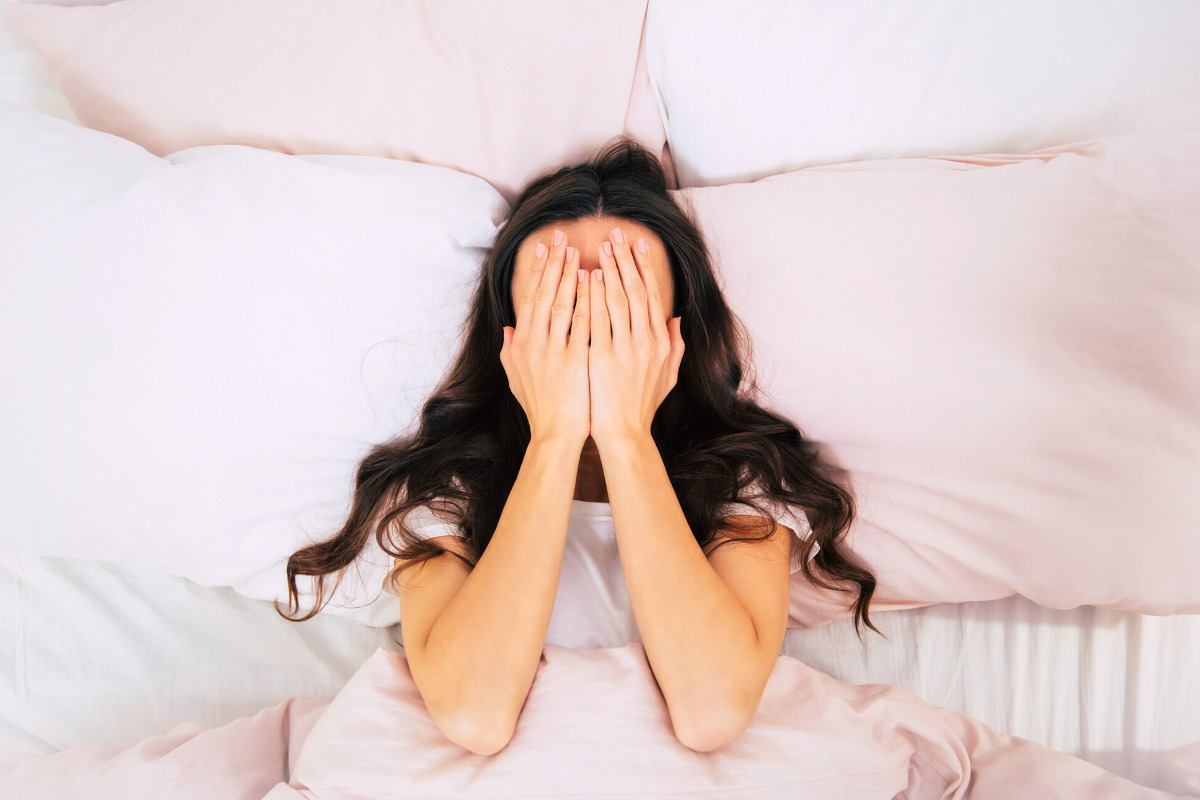10 Menopause Insomnia Remedies

If you find yourself struggling with sleep in midlife, you’re not alone. While menopause-related insomnia is extremely common, there are a range of effective remedies to help you overcome sleep disturbances and experience restful nights once again. Menopause brings hormonal changes that can disrupt sleep patterns, but with the right strategies, you can regain control and wake up refreshed. Let’s explore ten menopause insomnia remedies and discover the path to better sleep.
Understanding Insomnia
Insomnia refers to ongoing difficulty in falling asleep, staying asleep, or experiencing restless sleep that affects your functioning the next day. Chronic insomnia is when these issues persist for longer than three months. While not all women will experience insomnia in midlife, the majority will notice some degree of sleep disturbance. Sleep struggles around menopause are multifactorial, so taking action starts with identifying why you’re losing sleep in the first place.
Causes of Insomnia During Menopause
Hormonal Imbalances
Fluctuating levels of estrogen and progesterone can disrupt the sleep-wake cycle and make you more likely to struggle with insomnia around menopause.
Night Sweats or Chills
Hot flashes (sudden episodes of feeling hot and sweaty) or uncomfortable chills are a major culprit in disrupted sleep for many women around menopause.
Depression & Anxiety
Women in midlife are more susceptible to feelings of anxiety and depression. Low mood or persistent anxiety can make it hard to fall asleep and stay asleep, and insomnia can, in turn, reinforce mood disturbances.
Breathing Difficulties
Aging and weight gain can increase your risk of developing sleep apnea around menopause. Sleep apnea is characterized by breathing pauses during sleep, further exacerbating insomnia and difficulty feeling rested. Breathing difficulties can be serious, so seek professional medical guidance if you suspect you have a problem.
Restless Legs
Restless legs (an uncontrollable urge to move your legs) and other nighttime movement disorders that interfere with sleep become more common with age. Consult your healthcare provider if you suspect that you have restless legs.
Menopause Insomnia Remedies
Now, let’s explore ten effective menopause insomnia remedies that you can start today.
1. Maintain a Consistent Sleep Schedule
Establish a regular sleep routine by going to bed and waking up at the same time each day. This helps regulate your body’s internal clock and promotes better sleep.
2. Create a Relaxing Bedtime Routine
Engage in activities that help you unwind before bed, such as taking a warm bath, reading a book, or practicing relaxation techniques like Midday’s immersive meditations or body scans.
3. Optimize Your Sleep Environment
As we age, we are more sensitive to noise and light in our sleep environment. Ensure your bedroom is conducive to sleep by making it dark, quiet, and cool. Consider using earplugs, blackout curtains, eye mask, or a white noise machine to create a peaceful sleep environment.
4. Manage Hot Flashes and Night Sweats
Wear breathable, moisture-wicking sleepwear and use cooling aids like fans, cooling pads, or moisture-wicking bedding to alleviate the discomfort caused by hot flashes and night sweats. Avoid triggers like alcohol and heavy or spicy food late at night.
5. Practice Stress Reduction Techniques
Incorporate stress reduction techniques into your daily routine, such as meditation, yoga, or journaling. These practices can help calm your mind and promote relaxation before bed.
6. Regular Exercise
Research shows that both aerobic exercise and strength training programs can significantly improve your sleep. Aim for at least 30 minutes of moderate exercise most days of the week, but avoid intense workouts close to bedtime.
7. Limit Stimulants
Avoid consuming caffeine, nicotine, and alcohol close to bedtime, as they can interfere with your sleep patterns. Opt for herbal tea instead.
8. Consider Magnesium Supplements
While the overall evidence about magnesium’s effect on sleep quality is inconclusive, individual studies have shown (and people frequently report) that magnesium supplements help them sleep better. The dosage of magnesium in sleep-promoting supplement products varies, so follow package directions and consult your healthcare provider for any questions about dosing. You can also start by ensuring that your diet incorporates magnesium-rich foods.
9. Try Valerian Root Supplements
Valerian root has been shown to promote sleep in midlife women. Dosing instructions vary, but experts generally recommend taking this supplement within two hours of bedtime.
10. Seek Professional Help
If your insomnia persists or significantly affects your quality of life, consult with a healthcare professional. They can provide further guidance, recommend additional therapies, such as Cognitive Behavioral Therapy, or prescribe medication if necessary.
Insomnia around menopause can be a major challenge, but by understanding the causes and implementing these remedies, you can take proactive steps toward achieving restful nights of sleep. Remember, each woman’s experience is unique, so find the remedies that work best for you and embrace the transformative power of a good night’s sleep. Sleep well, and wake up ready to conquer each day with renewed energy and vitality.
Looking for more expert support during menopause, including everything you need to improve your sleep? Download the Midday menopause app from the App Store or visit us at Midday.Health.
Sign up for more unique women’s health content
By submitting this form, you agree to the Lisa Health Privacy Policy and Terms of Use

